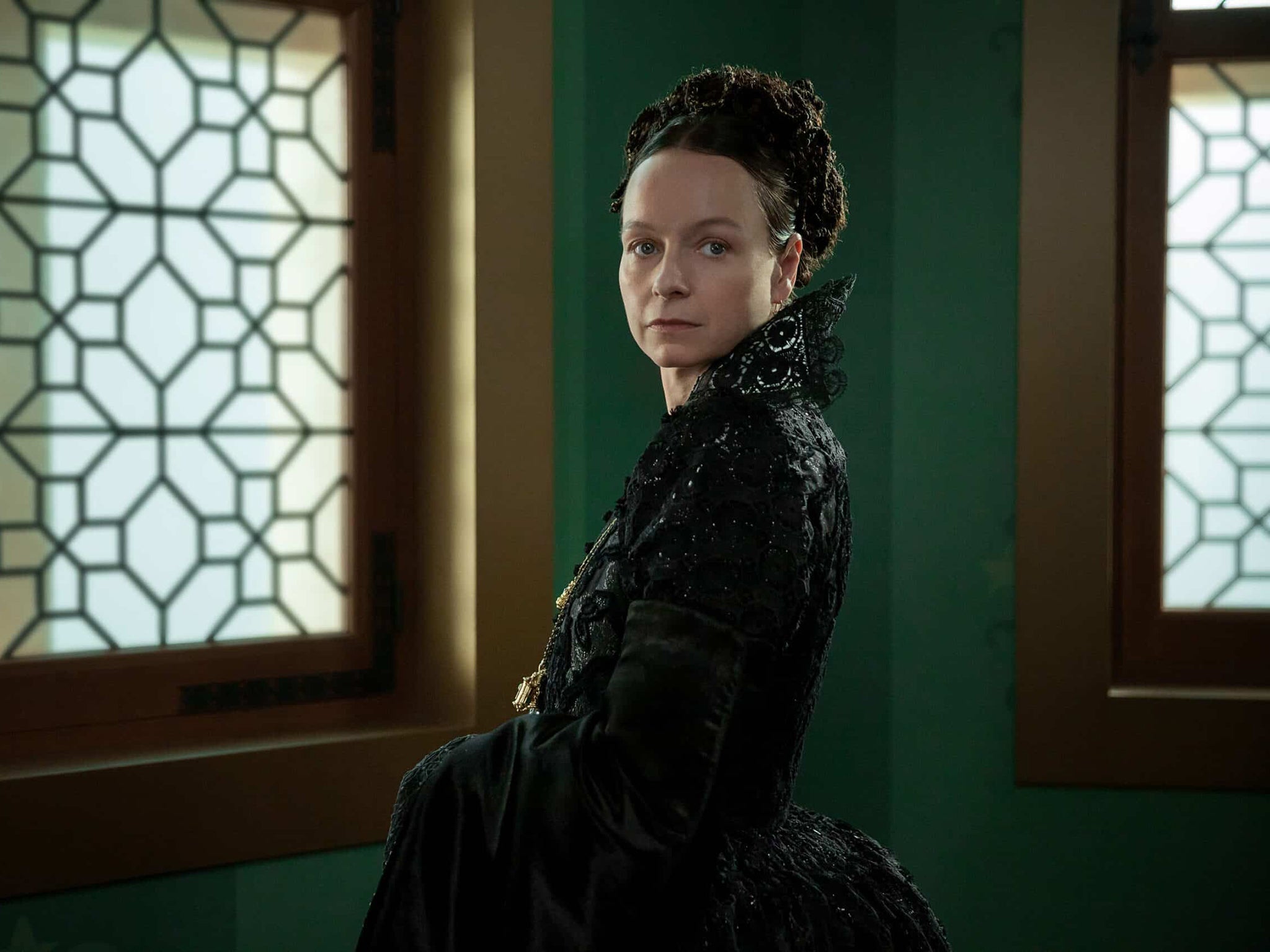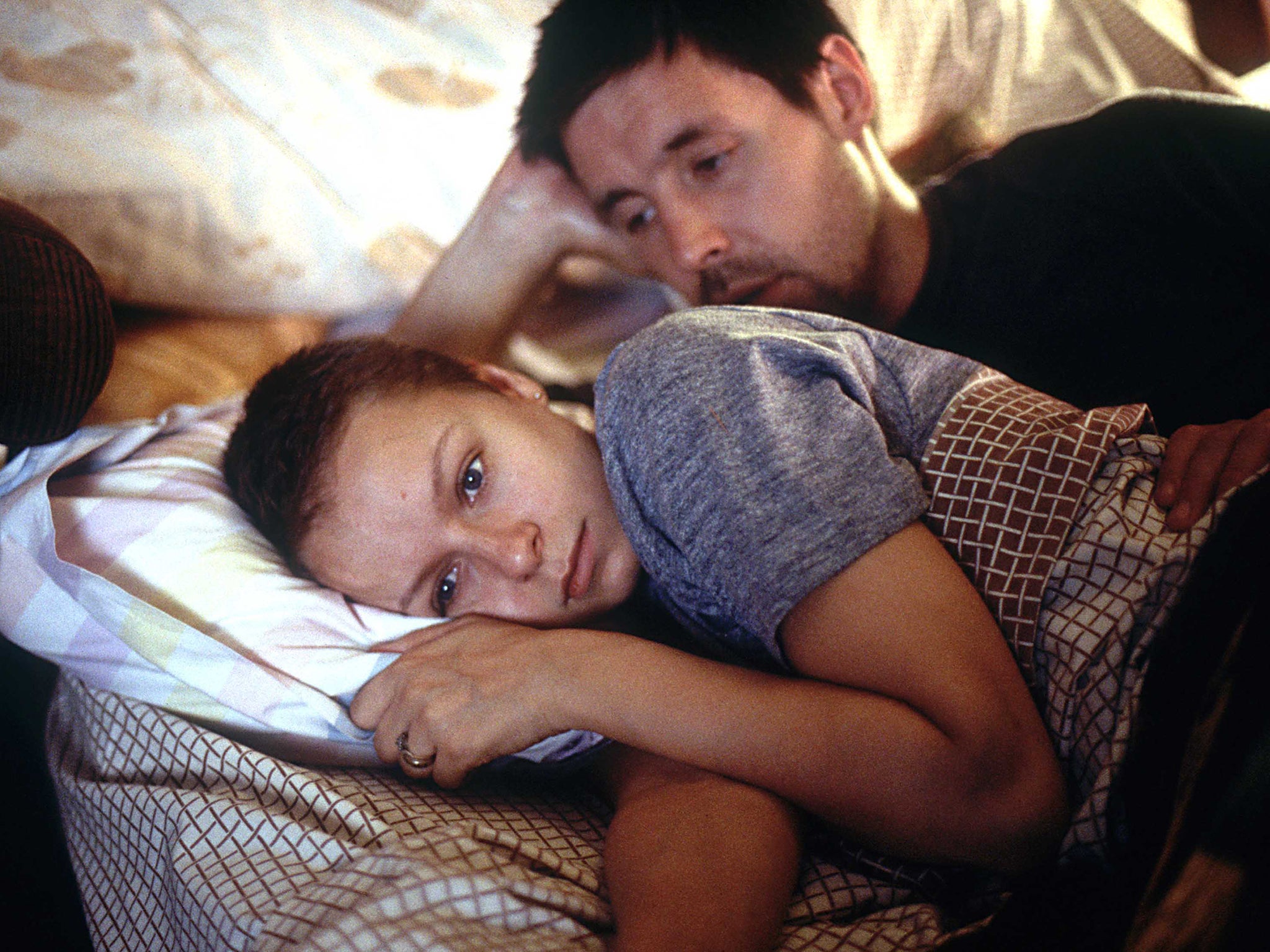Samantha Morton: ‘I’ve never sought revenge – you have to be careful what you sow’
The Oscar-nominated actor talks to Helen Brown about playing the French queen Catherine de Medici, why she finds her fixation on vengeance ‘tricky’, and the parallels with and differences from her own childhood

![‘There’s no interest [in an “Unloved” sequel]. Film 4 just wants to make comedies and films with Shane Meadows’](https://static.independent.co.uk/2022/09/08/16/GettyImages-1410327572.jpg)
Your support helps us to tell the story
From reproductive rights to climate change to Big Tech, The Independent is on the ground when the story is developing. Whether it's investigating the financials of Elon Musk's pro-Trump PAC or producing our latest documentary, 'The A Word', which shines a light on the American women fighting for reproductive rights, we know how important it is to parse out the facts from the messaging.
At such a critical moment in US history, we need reporters on the ground. Your donation allows us to keep sending journalists to speak to both sides of the story.
The Independent is trusted by Americans across the entire political spectrum. And unlike many other quality news outlets, we choose not to lock Americans out of our reporting and analysis with paywalls. We believe quality journalism should be available to everyone, paid for by those who can afford it.
Your support makes all the difference.I don’t believe I have any more power now than I did at 22,” says Samantha Morton. “And I didn’t have any power then.”
That’s a startling statement to process after watching the 45-year-old’s regal performance in The Serpent Queen, during which she wields power with terrifyingly casual control and cruel smirks, as heads roll on her command. She stars as Catherine de Medici, the Italian merchant’s daughter who became queen of France in 1547, gradually acquiring a reputation as one of the most brutal and calculating European rulers of the period.
The crisp and witty feminism of the new Starz series highlights the misogynistic myths that history has spun around the “Medici Bitch” (who wasn’t conventionally pretty or submissive and did not conceive a child in the first decade of her marriage). But it doesn’t patronise its heroine by attempting to reinvent her as a misunderstood goody.
“She’s more complex than that,” says the Nottingham-born Golden Globe winner. “From the day she was born, everyone was out to kill her. She was orphaned as a baby [her parents died of syphilis] and taken in by her grandmother, who then also died. She grew up in a convent in Italy where her family name was mud. She arrived in France at 14 and – for different reasons – found she was not welcome there either. Her survival depended on her cleverness and her ability to watch and listen.”
Morton pauses. “People may be drawn into this show by the idea that it’s a costume drama, but the deeper they get into the darkness, the more they’ll realise it has more in common with a series like Succession or a film like Goodfellas.”
It was costume dramas in which Morton made her name. She graduated from small-screen, teen roles in ITV series Soldier Soldier and Boon to a bigger part in Andrew Davies’s 1996 adaptation of Emma and the lead in Robert Young’s 1997 adaptation of Jane Eyre. American directors engaged with the self-contained intelligence locked behind her grey-blue gaze. Steven Spielberg cast her as a shaven-headed clairvoyant kidnapped by Tom Cruise in Minority Report (2002), and she was Oscar-nominated for In America the following year. But she was back in a corset in 2004 starring opposite Johnny Depp and John Malkovich in The Libertine and as Mary Queen of Scots in Elizabeth: The Golden Age (2006). That same year, she became known for taking darker roles, playing the Moors murderer Myra Hindley in the TV film Longford, for which she received a Bafta nomination. Although families of Hindley’s victims criticised her for bringing the killer more attention, Morton said she felt it was her duty as a performer to “raise issues we’re afraid to look at”. Most recently she was chilling as villainous zombie Alpha in The Walking Dead.
The Serpent Queen’s writer, Justin Haythe, tells me he thinks Morton “is a genius, one of the greatest actors of her generation”. He says that Catherine could only have been embodied by someone who could emulate her inherent mystery. “I think Sam has a depthless quality to her that makes you look, and look, and look. There’s a quality of outsiderness to Sam. She’s always singular.”
Speaking to me via video link, an off-duty Morton looks almost as stately as her character, wrapped in a huge dressing gown with a stiffly raised white collar, which recalls a ruff. “I am wearing a dress under this,” she grins, giving me a quick flash of frock, “but the air-conditioning in this hotel room is freezing!” But she also uses the extra layer as both comforter and armour when I ask her about the parallels between her own history and that of her character. She draws it tightly around herself as she concedes that “there are some obvious similarities, yes… But I don’t draw on any of that. It might be in my DNA, somewhere. But it’s not like I go: mmmm, I remember…”
Born in 1977, Morton is the third child of a couple who divorced in 1979. She lived with her alcoholic father until she was eight, when she was made a ward of court because neither of her parents could care for her and her siblings. She has described her father packing salad cream sandwiches in a Sunblest bag and sending her out for whole days, telling her to “come back when it’s dark”. Her mother was involved in a violent relationship with her second husband, which made it impossible for Morton to live with her again. So she spent the next nine years in foster care and children’s homes: an experience she explored in her Bafta-winning directorial debut The Unloved (2009).

Watch Apple TV+ free for 7 days
New subscribers only. £8.99/mo. after free trial. Plan auto-renews until cancelled

Watch Apple TV+ free for 7 days
New subscribers only. £8.99/mo. after free trial. Plan auto-renews until cancelled
“Catherine de Medici was an orphan,” says Morton. “I wasn’t an orphan but I didn’t have access to my parents in the traditional fashion.” She does concede that she relates to Catherine’s struggle to learn the rules of different courts, as her character is bounced from the hypocrisies of Catholic Rome (where she’s shown spitting into the drink of her uncle the Pope, played by a scheming Charles Dance) to the more overt licentiousness of the French court. “When you’ve had lots of different foster homes with different religions, they eat differently at different houses. Different homes have different rules… It’s all kind of… well, it can be a challenge.”
Like Catherine, Morton was a watcher. “As a kid,” she said on Desert Island Discs in 2020, “I used to watch people on the bus – how they smoke their cigarettes, how they move their head, how they listen, how they get off the bus and walk down the street. Have they just had some news, what’s their morning been like? Are they happy? Are they sad? Why have they got their hands in their pockets? I’m just constantly asking questions about people.”
Morton thinks that it was “defiance” that drove Catherine. “She has a calling. She knows she’s different, she knows she’s special. She’s bright. She was a mathematician, an astronomer, she designed incredible gardens. She had visions and a relationship with Nostrodamus…”

Although not especially religious, Catherine de Medici was superstitious from childhood. She took an astronomer with her to France and when she was struggling to become pregnant, she is believed to have tried every trick in the book, including drinking mule’s urine and placing cow dung and ground stags’ antlers on her “source of life”. After 10 years of having her fertility publicly scrutinised, she gave birth to a son named Francis in 1544, and nine more children followed.
Morton tells me that when Catherine’s husband died “she was the first queen to wear black in mourning. I didn’t know that! I thought that began with Queen Victoria centuries later. People scorned Catherine because white was the traditional colour of mourning in France at that time, but she followed her own family tradition.”
Maybe I can shame Channel 4 into doing something!
While other period dramas luxuriate in historical fashion for its own sake, The Serpent Queen shows how clothes were used as power plays. “We still see this going on today with Kim Kardashian,” says Morton. “Or somebody like Meghan Markle making a statement by wearing red. Mary Queen of Scots wore red when she was murdered.” (Mary wore a black dress to her execution, but it was removed by her maids before her death, to reveal a crimson velvet petticoat, red sleeves and crimson-brown satin bodice – red being both the colour of blood, and the liturgical colour of martyrdom in the Catholic Church.)
While Morton admires Catherine’s strategic mind, she admits she found her fixation on vengeance “more tricky”. I push her on this, because in her Desert Island Discs interview she described how – under the influence of drugs, aged 14 – she had threatened to kill another girl with a knife, believing the other child to be a bully who had pimped out a nine-year-old boy. The incident led to an 18-week sentence at an attendance centre. “I was mortified,” she told the BBC’s Lauren Laverne. “And I’m sorry to her. We were all abused. She was a child herself. Nobody looked after us properly. We were rioting in that home because they were locking the fridges at night. We were not safe.”
I wonder if she’s blanking this out now when she tells me: “Without sounding like a twit, I honestly can’t say I’ve ever sought revenge. I’ve felt absolute horror and grief and confusion when human beings do awful stuff, either to society or to each other. I’ve never had that kind of desire to have personal revenge. I’ve always believed that it all comes out in the wash, that you have to be careful what you sow.”
But I feel the truth of her faith in “the forgiveness of which I am capable”. Nobody has ever been charged over the “violence, sexual abuse, torture…” she has described experiencing in her youth and she has never pursued prosecutions. Today she is keen to differentiate between Catherine’s love of revenge and her own desire for justice. “I’ve always been somebody who wants that.”

But it’s not the abusers of the past who make Morton angry when we talk. It’s the Channel 4 bosses of the present. She tells me that The Unloved was the first in a trilogy of films she has written about the care system. But she can’t even get the people at Film 4 to read the scripts of the second two. “Starlings is about leaving care and being placed in a homeless hostel. Then my third film is about the perspective of a parent having a child taken away from them and fighting social services. That’s called Pamela and it’s based on my mother. If people read the scripts and didn’t like them I’d say fair dos. But there’s no interest. Film 4 just wants to make comedies and films with Shane Meadows.”
The subject ought to be brought to the fore. In 2020, children’s charity Barnardo’s warned of a “state of emergency” in the foster system, while local government sources have warned that a series of factors risk combining to cause a fresh crisis. Increased poverty as a result of both the pandemic and the cost of living crisis leads experts to anticipate a recruitment deficit of around 25,000 foster-care families by 2026, according to analysis by the Social Market Foundation (SMF).
Morton shakes her head at her powerlessness to publicise the issue. She says it’s not as though The Unloved was a worthy social issues film that failed to pull in viewers. “We won a Bafta! We got the highest viewing figures ever for Channel 4 [two million].” When I tell her she might need to channel some Medici-type skills to get her scripts to the top of the pile, she agrees, forcefully.
“Yes!” she enthuses. “Yes I do. But that’s why I’m talking to you and maybe I can shame them into doing something!”
‘The Serpent Queen’ premieres 11 September on STARZPLAY



Join our commenting forum
Join thought-provoking conversations, follow other Independent readers and see their replies
Comments